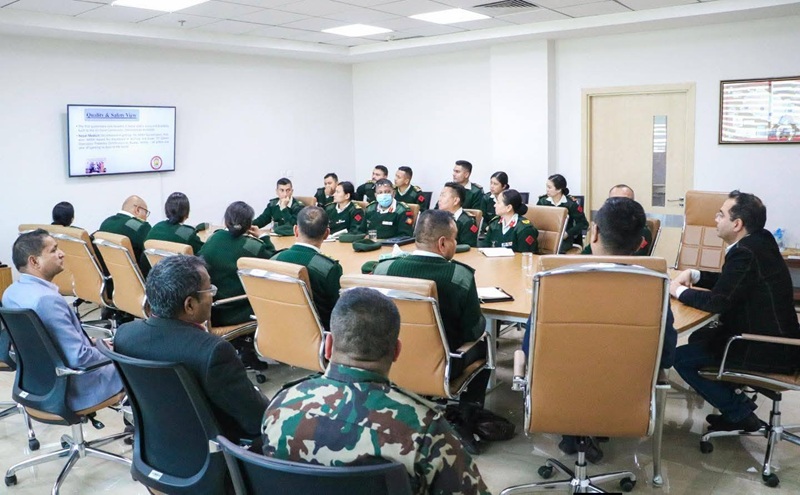Global Money Transfer Interaction Program Concludes in Nepal
6th January 2024, Kathmandu
To promote global money transfer and explore opportunities in information technology, the Nepal Deposit and Benefit Link Forum (NDBL) organized an interaction program titled “International Day of Family Remittance” from January 30 to February 2, 2025, at the Aranya Boutique Hotel, Hattisar Road, Kathmandu.
Global Money Transfer Interaction Program
The program was aimed at discussing policies, challenges, and solutions related to family remittance systems.
Highlights of the Program
The event saw the participation of Rajendra Karki, Vice President of NDBL, along with 608 representatives of the organization. Various stakeholders, including representatives from national and international financial institutions, banks, and members of the Non-Resident Nepali Association (NRNA), were also present.
Key Discussion Points
- International Influence on Nepal’s Family Remittance System
- Connecting Remittance to Small Businesses
- Role of Cooperatives in Remittance Systems
- Challenges of Illegal Money Transfers and Their Negative Impacts
- Opportunities for Using Technology in Remittance Management
Insights from the Program
Rajendra Karki, Vice President of NDBL, emphasized the vital role remittance plays in Nepal’s economic growth. He highlighted the need for policy reforms to better manage the system and addressed the significance of strict regulations to prevent illegal transactions. He also advocated for expanding digital platforms to make remittance processes more transparent and accessible.
Special Messages
Participants from various institutions presented plans to link remittance with small businesses, which could empower rural areas economically. They also stressed the importance of building transparent and efficient digital money transfer systems using advanced technologies.
Importance of the Program
The program prioritized the need for collaboration among stakeholders, leveraging technology, and fostering family economic growth through remittance management. Recommendations were made to reform Nepal’s remittance policies in line with international standards.
Conclusion
This interaction program highlighted the significance of a legal and organized remittance system in Nepal. The participants collectively expressed their commitment to developing robust remittance systems that align with the country’s economic goals. Initiatives like this play a crucial role in driving Nepal’s economic development and ensuring a sustainable remittance infrastructure.







